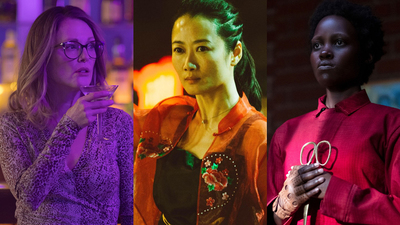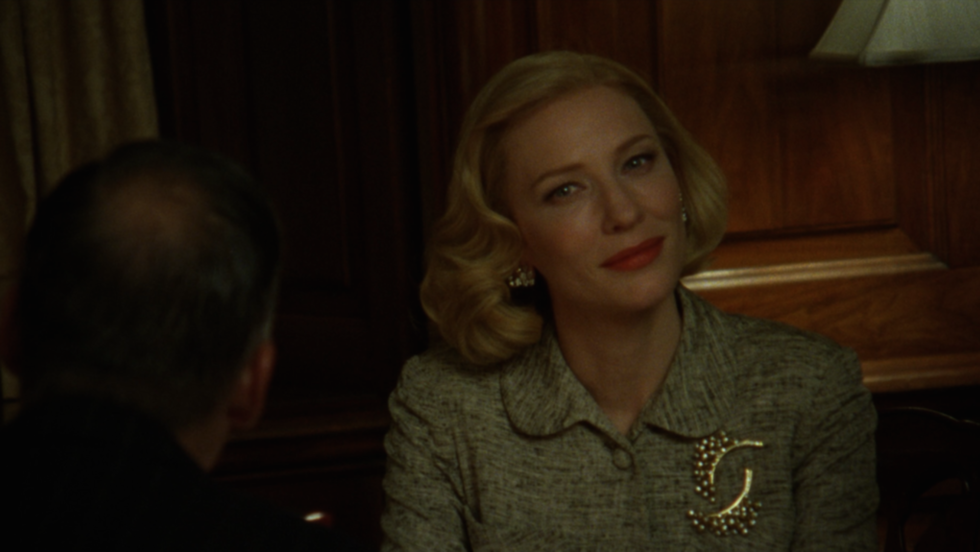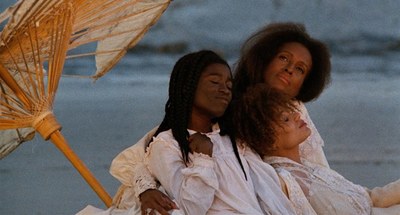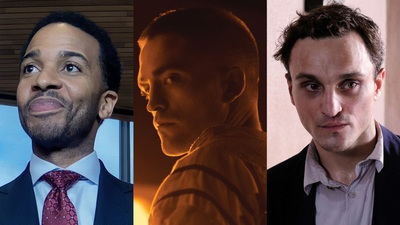
BY MATTHEW ENG |
30 Important, Neglected, and Fantastic Films from the 21st Century So Far
Every day of Pride Month, we spotlighted fiction, documentary, and experimental films made by LGBTQ+ directors from different backgrounds, countries, and industries that have been released during the 21st century so far, as well as films from this century that deal directly with the lives of LGBTQ+ individuals.

Much has been written in recent years about the state of queer cinema. These assessments tend to be marked by the conflicted, bittersweet concern that, as LBGTQIA culture has come closer than ever to occupying the mainstream, the filmmaking by and about lesbian, gay, bisexual, transgender, and other identifying individuals has itself grown complacent—less radical in its politics and erotics, less distinctive in its aesthetics, less risk-inclined altogether.
Pride Month is a great occasion for commemoration, but also an ideal time for reflection and reevaluation. Today’s slate of LGBTQ+ films share little resemblance to the pivotal works of independent, New Queer Cinema pioneers like Gregg Araki, Lizzie Borden, Cheryl Dunye, Todd Haynes, the late Derek Jarman and Marlon Riggs, Rose Troche, and Gus Van Sant, among others, who filled a void in cinema of the 1980s and early-to-mid 1990s with artistic innovation, unfaltering polemics, and sexual exploration. The fight, not just for equality but visibility, that these trailblazers undertook is now the banner of consumer-friendly pop stars in the middle of their latest brand reinvention and helmers of billion-dollar superhero franchises who are all too eager to pretend that incorporating the scantest suggestion of queerness into their three-hour behemoths is progress enough.
There are many valid complaints to be made about the oftentimes generic LGBTQ+ movies that are usually covered by the press, rewarded by awards bodies, and targeted to the conventionally-minded, in which the original edges of LGBTQ+ characters are sanded beyond recognition for the sake of mass-market simplicity. These films—some of them independently-made, others manufactured by studios—find success by replicating the most clichéd and conservative qualities of mainstream fare. But to bemoan an entire era of filmmaking is to willfully overlook the tremendous and eclectic work that is being made by veterans like Pedro Almodóvar, Lisa Cholodenko, and Ira Sachs as well as Araki, Dunye, Haynes, and Van Sant, New Queer Cinema holdovers who continue to pursue atypical paths, beating the odds and obstacles that have condensed the promising careers of their contemporaries. And to entirely shrug off the films that have been made in the decades directly after the movement is to disregard an entire new generation of artists, who originate from all corners of the globe and have taken up the gauntlet thrown down by their forbearers by making films that deal—directly or indirectly—with all facets of LBGTQ+ life. And although there are significant strides still to be made in film industries at home and abroad, the vast array of directors making LGBTQ+ films also looks a lot more representative of the world at-large, in terms of race, gender, and ethnicity, than it did throughout the end of the 20th century; that, too, deserves to be acknowledged and applauded.

In putting together a list of 30 films for Pride Month, I knew I wanted to focus on work released during the 21st century in order to show not just how far we have come in the years since the watershed moment of the New Queer movement, but to salute certain achievements that were unfairly disregarded upon their arrival not so long ago. Many of the films compiled here should be readily familiar to even the most casual of filmgoers—the Carols and Moonlights—but I also wanted to shine a spotlight on lesser-known titles that deserve wider audiences—the Brother to Brothers and History Lessons and I Don’t Want to Sleep Alones featured here—even at the expense of excluding some popular and beloved features. Just as exciting as focusing attention on neglected works of art was the prospect of highlighting up-and-coming directors and undersung masters who have yet to receive the appreciation they merit.
The international collection of LGBTQ+ filmmakers represented on this list have pursued different areas of the medium, often within the span of a single career. They are not just fictional storytellers, but also groundbreaking documentarians like Yance Ford and Kimberly Reed, singular essayists like Jenni Olson, and visionary, free-form experimentalists like Tsai Ming-liang, Apichatpong Weerasethakul, and the recently passed Barbara Hammer. The list includes such world-class masters as Terence Davies, Lucrecia Martel, and the deeply missed Chantal Akerman, whose respective outputs this century have maintained an indirect relation to queerness and remain all the more fascinating for such bold and complex obliqueness. Also included here are nimble cinematic storytellers like Andrew Haigh, Dee Rees (whose Bessie is pictured above), and Céline Sciamma, whose earliest works evince a command of their craft that has only continued to flourish, as well as fast-rising writer-directors like Andrew Ahn, Desiree Akhavan, and Maryam Keshavarz, who have each tackled worthy themes and at times autobiographical experiences with a refreshing voice still being honed and personalized. And you will find films here by Sean Baker, Marielle Heller, Barry Jenkins, and other artists who do not identify as LGBTQ+ but whose willingness to not merely tackle but understand stories that live outside their personal domain has produced rewarding and indelible depictions of LGBTQ+ characters.
The films included on this list represent myriad experiences and perspectives, but they refuse to fit into a neat and uniform category. Each film speaks proudly for itself; together, they form a vast and multitudinous portrait of two decades’ worth of unconventional, eye-opening, and boundless moviemaking that is at once a continuation and fulfillment of the battle for representation waged during—and long before—the New Queer Cinema movement. These works remind us that there exists no manual listing the proper qualifications for an exemplary LGBTQ+ film—and that there can be no one right way to define LGBTQ+ cinema.

Appropriate Behavior (Desiree Akhavan, 2014): Reeling from a brutal breakup, a headstrong Brooklynite struggles to reconcile her duties as a closeted Persian daughter with her true, queer self in Akhavan’s breakthrough, a razor-edged comedy with intervals of aching vulnerability. Watch it on Amazon Prime.
Bad Hair (Mariana Rondón, 2013): A curly head of hair becomes the unruly terrain on which a battle of wills ensues between a paranoid Venezuelan mother and a curious young child still developing a sense of self in this sharp and boldly unsentimental look at genderqueer evolution. Watch it on Amazon Prime.
Bessie (Dee Rees, 2015): Aided by Queen Latifah’s knockout star turn, Rees renders the heights and rock bottoms of blues empress Bessie Smith. Her movie honors the nuances of a hard-fought life that flouted social boundaries, whether they be sexual, gendered, racial, or artistic. Watch it on HBO.

BPM (Beats Per Minute) (Robin Campillo, 2017): As HIV/AIDS swept Paris, the city’s ACT UP branch countered indifferent inaction with passionate protest. By covering every facet of his subjects, Campillo pays ultimate tribute to their fight for life—in all its pains and pleasures. Watch it on Hulu.
Brother to Brother (Rodney Evans, 2004): A love story in which a young student and an elder sage connect not on a romantic plane but a spiritual one. Evans ponders the same dilemma that plagues his characters: how does a queer Black artist survive in a world averse to difference? Watch it on SnagFilms.
Can You Ever Forgive Me? (Marielle Heller, 2018): Heller’s film is several things—an acerbic and unromantic study of a singular woman, a buddy comedy with tenderness and trenchancy, and a portrait of a bygone and distinctly queer New York in which everyone is striving to survive. Watch it on Amazon.

La Captive (Chantal Akerman, 2000): Akerman’s tale of perverse obsession requires a lot of its viewers, including a readiness to both pay close attention to her unhurried, often clinical images and probe her sly elisions for the female homoeroticism that is hidden in plain sight. Watch it on Fandor.
Carol (Todd Haynes, 2015): As ravishing and emotionally walloping a romance as any that has ever illumined the screen. Haynes, screenwriter Phyllis Nagy, and two peerless actresses disinter a specific history of women who loved women and refused to hide their love in the shadows. Watch it on Netflix.
Circumstance (Maryam Keshavarz, 2011): Two Iranian girls become besotted with each other and test the limits of rebellion in a modern-day patriarchy in this gripping coming-of-ager, defined by the devastating poignancy of kindred spirits dreaming of a future they may never reach. Watch it on Amazon.

A Fantastic Woman (Sebastián Lelio, 2017): Lelio’s melodrama proved equally pivotal off-screen—precipitating a watershed moment in the fight for transgender Chileans’ rights—and on, allowing Daniela Vega’s poised and prepossessing star power to act as an added authorial presence. Watch it on Amazon.
Hedwig and the Angry Inch (John Cameron Mitchell, 2001): One of the theater’s most singular characters is brought to kaleidoscopic cinematic life by Mitchell, who dazzles on both sides of the camera. Hedwig, inspired by many but keenly herself, remains a paragon of self-creation. Watch it on Amazon.
History Lessons (Barbara Hammer, 2000): Hammer fuses rare footage, modern reenactments, and recontextualized clips into an irreverent, multimedia tapestry of historical revision that reveals and rebuffs the dehumanizing ways in which lesbians were represented in the 20th century. Watch it on Amazon.

The Holy Girl (Lucrecia Martel, 2004): Martel visualizes adolescent female inquisitiveness and devotion with a taut, electric virtuosity that puts this master in a class of her own. As her characters resist and give in to temptation, their world becomes the only one that matters. Rent it on Netflix.
The House of Mirth (Terence Davies, 2000): Davies’ run of willful screen heroines begins with Edith Wharton’s tragic Lily Bart. The filmmaker’s kinship with Lily, an outsider queered by her refusal to follow society’s dictates, is all the more touching for being so deeply-rooted.
I Don't Want to Sleep Alone (Tsai Ming-liang, 2006): No one works as evocatively with time as Tsai. His static, prolonged shots accumulate lust, intensity, and import as a drifter in Kuala Lumpur magnetizes several people, including a doting, Bangladeshi migrant eager to connect. Rent it on Netflix.

Keep the Lights On (Ira Sachs, 2012): The relationship between a documentarian and a lawyer is poisoned and undone by substance abuse in this lived-in, emotionally autobiographical elegy that radiates a sensitivity for the needs of its characters, a trademark of its gifted maker. Watch it on Kanopy.
The Kids Are All Right (Lisa Cholodenko, 2010): The brilliance of this comedy lies in its wisdom that the sustenance of personal bonds demands not just love but attention. Cholodenko accepts the fluidity of human emotion and desire, crafting a story that is achingly true to life. Watch it on Amazon.
Monster (Patty Jenkins, 2003): Instead of treating Aileen Wuornos as a case study, director and star afford her the right to be a person who loved and lost, bore and inflicted brutality. In their hands, Wuornos’ story isn't so much ripped from headlines as wrenched from oblivion. Watch it on Amazon.

Moonlight (Barry Jenkins, 2016): With moviemaking as intimate as a whisper and as imposing as waves pounding the sand, Jenkins unfolds one man’s story and invites us to witness his entire world. He didn’t set out to film a milestone in Black queer male representation. But he did. Watch it on Netflix.
Prodigal Sons (Kimberly Reed, 2008): With enormous fortitude, Reed strives to mend the gulfs that appear unbreachable—between a woman and her mentally ill brother, past and present selves, the homes we choose and the homes we never really leave—in her unflinching family portrait. Watch it on Kanopy.
The Royal Road (Jenni Olson, 2015): Unlike the land, the heart of a lover cannot be conquered and colonized. Across haunting, deserted, 16mm California vistas, Olson ruefully muses on Alfred Hitchcock’s Vertigo, American expansion, unavailable women, and the inexorable pull of the past. Watch it on Kanopy.

Southern Comfort (Kate Davis, 2001): Robert Eads was a charming, chain-smoking transgender man who died in 1999 of a cancer doctors wouldn't treat. Davis shot his final year, spent in the embrace of his chosen family, who gave him a fortifying home in a world blind to his beauty. Watch it on Tubi.
Spa Night (Andrew Ahn, 2016): A Korean-American teen balances filial duty with his irrepressible sexual curiosity in this immersive and formally controlled debut, which offers no false promises but plenty of compassion for a character that American movies rarely bring into focus. Watch it on Amazon.
Strong Island (Yance Ford, 2017): By reckoning with the 1992 murder of his brother William, Ford shows—visually, sonically, rhetorically—how his family's burden is that of so many African-American families who know that the personal and the political can never truly be unbraided. Watch it on Netflix.

Talk to Her (Pedro Almodóvar, 2002): Two men are brought together by one’s irrational and unfaltering devotion to a comatose woman in the crowning achievement of Almodóvar’s career, an empathetic and impeccably mounted melodrama that takes root in the mystery of human connection. Watch it on Amazon.
Tangerine (Sean Baker, 2015): This day-in-the-life portrait of two transgender sex workers bursts with screwball chaos and eye-popping color, never forsaking genuine sentiment for artistic innovation. L.A. and its locals are captured with ground-level closeness and mythic wonder. Watch it on Hulu.
They (Anahita Ghazvinizadeh, 2017): In her startling feature debut, Iranian writer-director Ghazvinizadeh creatively renders the experience of a Chicago teen mulling gender transition as an enigmatic tone poem made up of porous frames, fluid camerawork, and tangible atmospherics. Watch it on Amazon Prime.

Tomboy (Céline Sciamma, 2011): Zoé Héran is splendid as an adolescent living in defiance of gender norms in this coming-of-age treasure that is small in scope but rich in feeling. Beat by beat, frame by frame, Sciamma evinces the heartfelt understanding that every child deserves. Watch it on Amazon.
Tropical Malady (Apichatpong Weerasethakul, 2004): A soldier pursues a country man in this shape-shifting, sensory-stoking meditation on desired objects that lure, disorient, and devour us. Dismantling the boundaries of narrative cinema, its eminent creator casts a similar spell. Watch it on the Criterion Channel.
Weekend (Andrew Haigh, 2011): Time looms large over the strangers who bare their souls and give their hearts to one another yet the emotional tug of this brief encounter is eternal and overwhelming. Romance, eroticism, conflict, and sorrow coalesce into a love story for the ages. Watch it on Amazon.

